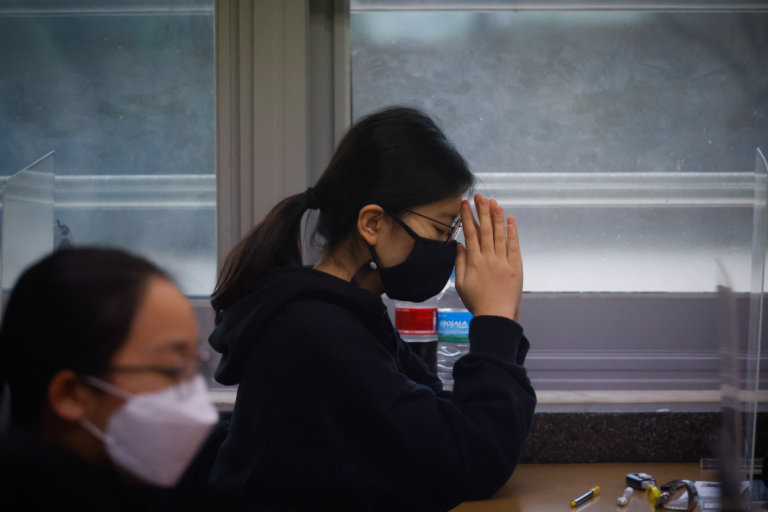
The 2022 GCSE and A Level exams are well underway. If you’re a candidate, this will likely serve as one of the most daunting experiences of your formative years. Managing exam anxiety, however, is a critical skill for any student who’s looking to do well in their exam. Failure to keep your emotions in check could have serious consequences.
Take the story of Sam Taylor, for example, who was 15 when he found out he was losing his hair due to alopecia — an autoimmune disorder that causes your hair to fall out. Several months after being diagnosed with the condition, Taylor suffered a major setback to his self-confidence when his hair started falling out from his head, face and body. He attributed his hair loss due to GCSE exam stress.
Knowing how to shake off exam anxiety is easier said than done. With a bit of guidance, it is possible to get through the exam period calmly.
going into my a level psychology exam tomorrow knowing i have deviated from ideal mental health😍#alevels2022 #ALevelPsychology pic.twitter.com/4hrLsycCxy
— katie (@__katielaurenx) May 23, 2022
Managing exam anxiety: 6 simple steps
Set realistic goals
To avoid burning yourself out before you even begin your exams, understand your capabilities. Setting realistic goals, whether hours, days or several weeks before your exams, gives you a clear direction of what you need to do to achieve your desired results, instead of resorting to the “panic-cramming” route.
One minute a day of this kind of breathing can reduce stress and anxiety. My latest on the research behind this breath technique. This Slow-Breathing Exercise Can Reduce Stress & Anxiety @PsychToday https://t.co/jgsycUNdcg #breath #meditation #stress #stressrelief #anxiety
— Marlynn Wei, MD, JD (@marlynnweimd) April 13, 2022
Breathing techniques
Did you know that it’s possible to de-stress in minutes? According to psychologists, slow-breathing exercises can reduce stress and anxiety.
According to one study, this breathing exercise can be helpful: breath in for four seconds and out for four seconds; gradually make the exhalation longer until the ratio is four seconds in and six seconds out.
Remember to take breaks
Don’t assume that more learning hours automatically equates to gaining more information. Like sleep, taking short breaks are important to make learning stick.
According to Professor Barbara Oakley, an educator and expert on teen learning, short study breaks are vital for the part of the brain which stores new information. Using the Pomodoro technique helps, which involves the following actions:
- Turn off all distractions
- Set a timer for 25 minutes of focused study
- Have a five-minute break once the timer goes off
Oakley recommends a student do this three times during a study session.
Research shows that taking purposeful breaks (between five to 60 minutes) from studying to refresh your brain and body increases your energy, productivity and ability to focus.
Figure out your learning pace
Oakley notes that there are two kinds of learners: declarative learners and procedural learners. Declarative learners tend to pick up information and learn at a quicker pace than others, but may be less flexible. Conversely, procedural learners require more time to pick up facts, but tend to be more accurate.
Both learning styles have their own advantages. In schools, however, fast learning is rewarded. If you’re a student, consider giving yourself sufficient time to work out your homework rather than racing through them to grasp what you’re learning.
By going over your course material as many times as you need, you’re bound to get it eventually.

Students learn at a different pace. If you require more time to work out a question, talk with your tutor to allow them to give you more flexibility with doing a practice test or homework. Source: Kenzo Tribouillard
Confide in a counsellor or someone you trust
There’s a lot of pressure to do well in exams which can fuel your anxiety, but it’s not a good idea to bottle in your emotions.
Consider talking to someone you trust — be it a friend or a family member — about your feelings or state of mind if you’re feeling anxious or stressed. Alternatively, you can also seek the services of a professional counsellor — many schools or colleges offer free counselling services to students.
I know I’m late to the party, but I just had a fantastic introductory #examanxiety session with a group of Year 11, using #EncantoDisney’s #Surfacepressure to talk about the different layers of pressure put on students in school and the impact it can have! #twitterEPs #funEP pic.twitter.com/6D9DDdQqki
— Dr Matt Dady-Leonard (@DrMattLeonard) January 26, 2022
Take care of your physical health
Many students tend to neglect their health while they are busy digesting information and revising for an upcoming exam. This is counter-productive as to do well in an exam, your memory and concentration needs to work well.
So eat well, get enough sleep and don’t forget to exercise as it can help you manage stress better. (We’ve written about the revision diet here; easy workouts you can do in your room here; and how to get the most out of your sleep here).










